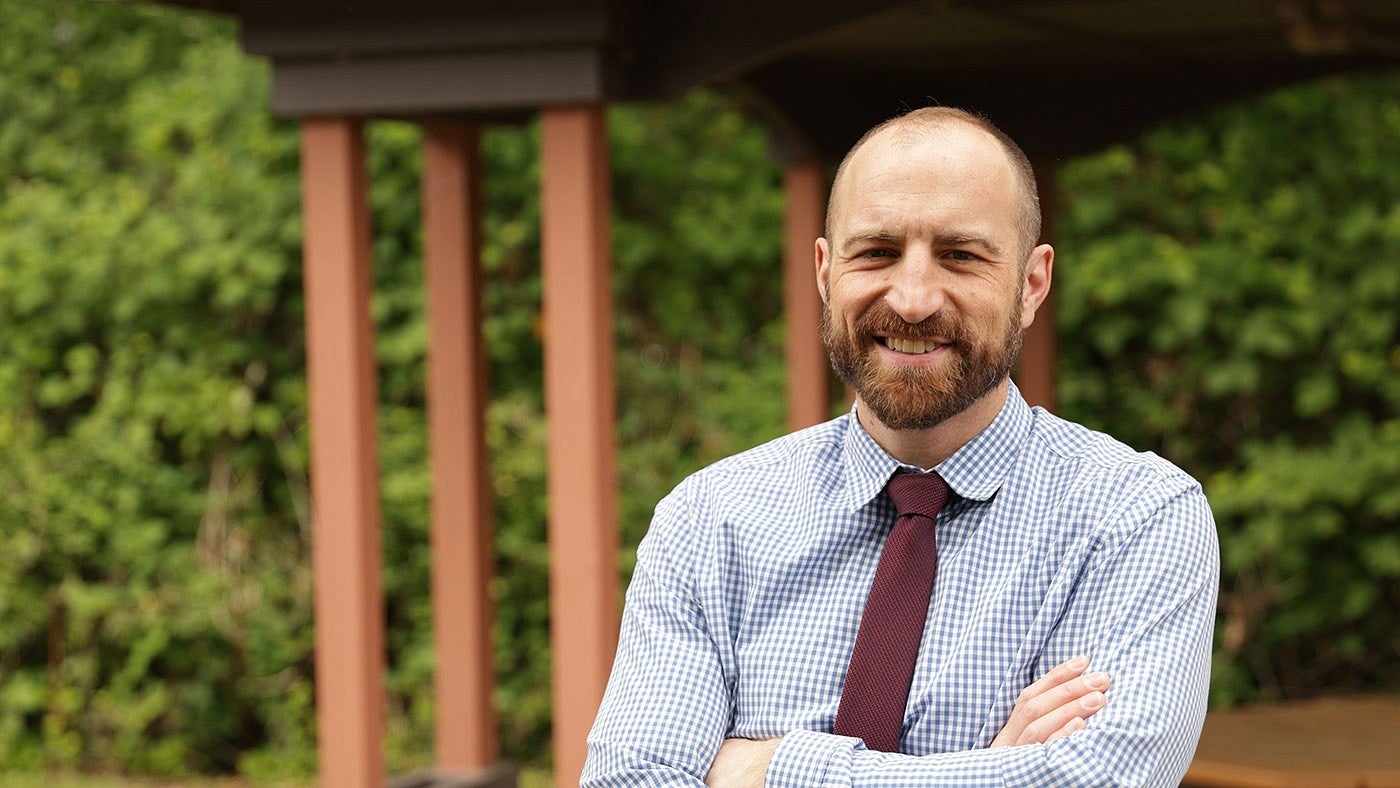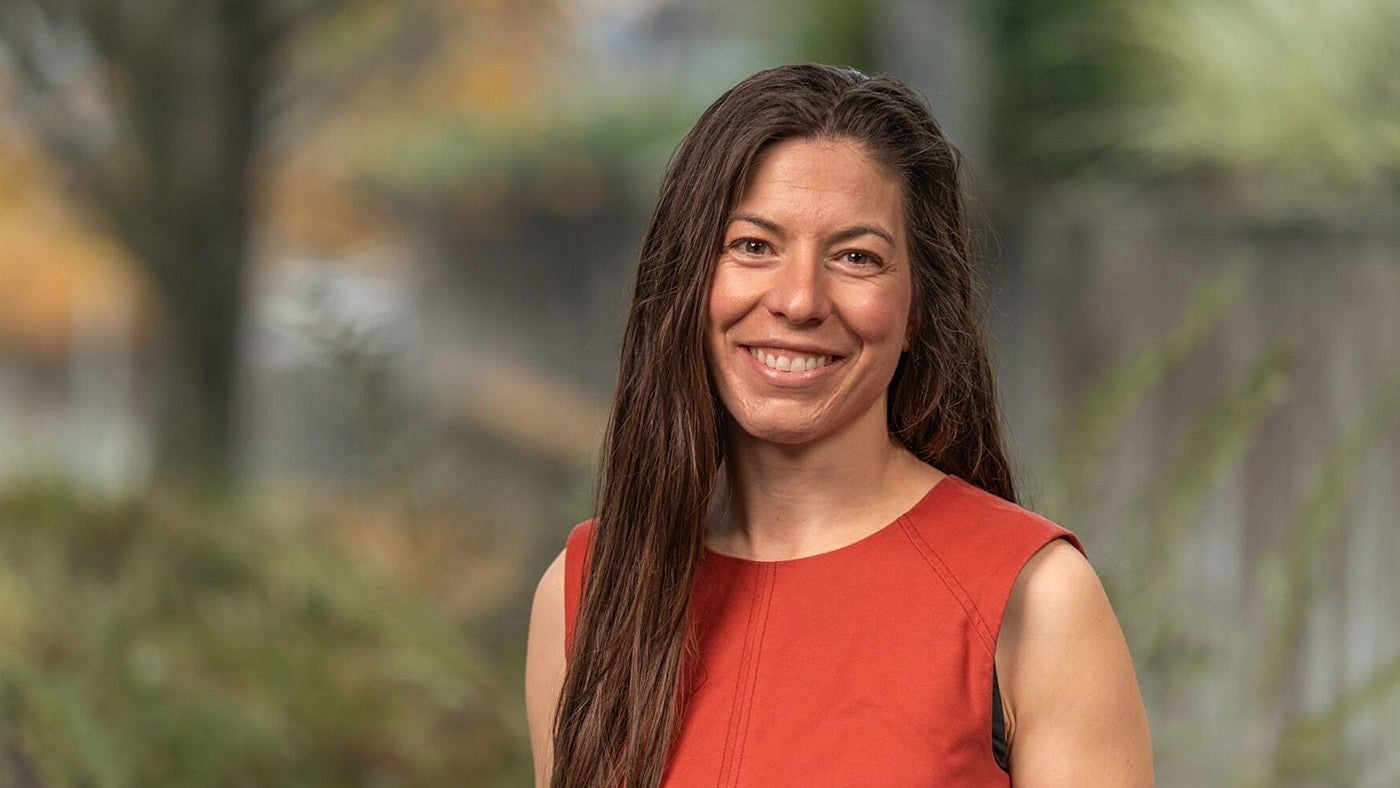Three University of Oregon faculty members have received Fulbright U.S. Scholar Program awards for the 2024-25 academic year.
The awards, given by the U.S. Department of State and the Fulbright Foreign Scholarship Board, enable recipients to pursue research abroad and expand their professional networks, building international collaborations and laying the groundwork for future partnerships.
"Our Fulbright scholars help strengthen the University of Oregon's ties to international partners and expand the impact of our research," said Anshuman "AR" Razdan, vice president for research and innovation. "We are proud to stand behind their work."
Jesse Abdenour
Associate professor, School of Journalism and Communications

Abdenour will use his Fulbright award to investigate cultural attitudes towards concussions in rugby players in New Zealand and how messaging from documentary films might shape those attitudes.
In collaboration with researchers at Auckland University of Technology, the University of Auckland and the University of Otago, Abdenour will film a documentary on concussions in youth rugby players, interviewing players, parents and doctors. He and his colleagues will then use footage from the documentary to research attitudes towards concussion safety and investigate what kind of messaging best convinces people to adopt safer practices around head injuries.
Recent research shows that even mild concussions can have long-lasting adverse effects on cognition and brain health, especially when they happen repeatedly. Those findings have led to changes in safety regulations in the National Football League and other sports leagues, but not everyone has been convinced. Also, problems such as underreporting of concussions persist in sports around the world.
"Some people are skeptical of the science that links football to concussions," Abdenour said. In places where football is a big deal, "much the way people distrust climate science, it threatens their cultural norms."
Abdenour has previously used videos about concussions in American sports as a tool to explore what kind of messaging best gets people to trust the science. The Fulbright project will help reveal how the response to media messaging might differ across cultures.
Lauren Hallett
Associate professor of biology and environmental studies, College of Arts and Sciences

Hallett will use her Fulbright award to further her research on restoration ecology. The award will fund three separate research trips to collaborate in person with colleagues she has met through global biodiversity-related research networks.
In Australia and Spain, she'll work with researchers at the University of Melbourne and the Doñana Biological Station who collect long-term data on how plants in Mediterranean climates respond to environmental changes.
"Mediterranean ecosystems, whose climate offers cool, wet winters and hot, dry summers, tend to host a lot of biodiversity," she said. "Our research sites in each of the three countries also have a lot of annual plants. This is helpful to me for experimental ecology, as I can do controlled experiments in which I manipulate the species present and the climate they experience and have robust results within a year."
While visiting Argentina, Hallett will meet with colleagues from the Nutrient Network, a global, grassroots research effort to study the human impacts from nitrogen enrichment. She'll also teach data management workshops for their students at the University of Buenos Aires.
"I think Fulbright can be a nice gateway for ongoing cross-pollination between labs," she said. "My bigger goal is to build relationships with these researchers to pave the way for more interaction."
Melissa Redford
Professor of linguistics, College of Arts and Sciences

Redford will study how bilingualism affects childhood development of speech sound production, thanks to a joint award from Fulbright Canada and the Pierre Elliott Trudeau Foundation.
Many benefits of bilingualism are well-documented, Redford said, but little is known about how it affects children's speech motor skills.
In collaboration with researchers at the University of Quebec in Montreal and the University of Montreal, she will conduct speech perception and production experiments in bilingual children.
"French and English are both official languages of Canada, and bilingualism is widespread in Montreal," Redford said. "This makes it possible for us to control for socioeconomic factors, which is often difficult to do in studies of bilingualism in the U.S."
Redford and her colleagues plan to investigate how English-speaking children with different levels of proficiency in, and exposure to, French acquire English sounds and sound sequences that all children have difficulty with. Examples include the "r" and "l" sounds after vowels in words such as "bar" and "ball."
"Our work intersects with some thorny political issues," Redford added. "Quebec recently adopted a new, more stringent law designed to promote French over the use of English, which has generated much controversy, especially in an educational context."
With collaborators at the Pierre Elliott Trudeau foundation, Redford also will delve into sociopolitical questions around the maintenance of other languages in the North American context, where the English language is dominant.






